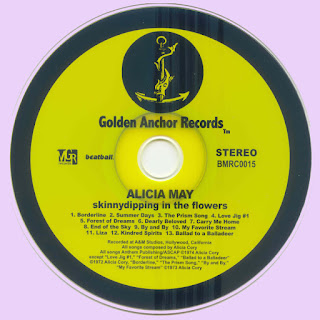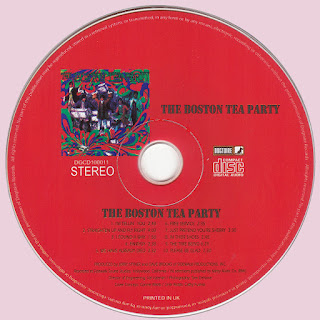Albert Hammond was born on May 18, 1944, in London and grew up in Gibraltar to Gibraltarian parents. In 1960, Albert left school, formed a band and began sending out recordings of his very first compositions to labels in England, where they were released by Parlophone Records. Soon thereafter, Albert met Mike Hazlewood and almost immediately, they teamed up as collaborators and began gaining recognition as a songwriting team: “Little Arrows” (Leapy Lee in 1968 - top 10 country and pop charts), “Make Me An Island” (a number one hit in 14 countries), “Gimme Dat Ding” (The Pipkins in 1970 - pop and R&B charts), “Freedom Come, Freedom Go” (The Fortunes in 1971), “Good Morning Freedom” (Blue Mink, 1970). “Gimme Dat Ding” was written for a children's television program called "Oliver In The Overworld" which starred Freddie and the Dreamers.
Having become one of Britain's most successful songwriting teams, Albert and Mike decided to move to southern California. Albert played his songs to every record company possible, until Hal Landers and Bobby Roberts gave him the first artist’s contract ever for their newly-built Mums label, a division of CBS’s Epic label. After auditioning for CBS president Clive Davis, and over 30 other people, Albert was asked to record some songs. Albert went into the studio to record what would become the It Never Rains In Southern California album. The title song went to number five in the U.S. and became a worldwide success. This offered Albert the opportunity to tour, which led him to almost all continents. Albert went on to record seven albums for the CBS label.
It Never Rains in Southern California is not only Albert Hammond's biggest solo hit, the album which spawned that Top Five smash was the best representation of the songwriter until his When I Need You album was released a few years later. The band is in a groove on this disc, and the songs are more happening than on the two immediate follow-ups, The Free Electric Band in 1973 and 1974's self-titled Albert Hammond. Songs like "Down by the River" and "The Road to Understanding" have more enthusiasm and spirit than the two succeeding albums. Albert Hammond, better-known as a songwriter for Jefferson Starship, Julio Iglesias, and Leo Sayer, among others, could have been a superstar on his own had he maintained the high level of songwriting exhibited on this disc.
Though Mama Cass Elliot did a brilliant rendition of "If You've Gotta Break Another Heart" on her The Road Is No Place for a Lady album, that single was not embraced by the public as it should have been. The original version is here, along with the songwriter's take on his own "The Air That I Breathe." The Hollies would get a bigger hit out of this song than they had with "He Ain't Heavy, He's My Brother," but Hammond's has more tenderness and more subtlety. It's great. "Listen to the World" has the singer preaching with a band who is rock-solid behind him. Dan Altfeld's co-production with Hammond and Michael Omartian's impeccable arrangements (Omartian was everywhere at this point in time) are captivating.
The material Mike Hazelwood was writing with Hammond here is also top-notch. "If You Gotta Break Another Heart" keeps coming back as a brilliant pop classic that will someday top the charts if given the chance. "Names, Tags, Numbers, & Labels" would get rearranged and released two years later on the Albert Hammond album, a practice the singer/songwriter continued on other releases. Taking previously recorded work and recrafting it wasn't a bad idea for a man whose tunes have helped so many other artists. It Never Rains in Southern California is a wonderful primer for people interested in this multifaceted artist. Songs like "From Great Britain to L.A." continue the theme initiated in It Never Rains in Southern California and continued on The Free Electric Band album -- a musician in search of fame. The arrangements, the vibe, all the elements fall into place perfectly on this outing, and it is a shame they couldn't duplicate the magic quickly and with such brio. Hammond could have rivaled Elton John for chart dominance at this time had he been able to churn out more albums as superb as this.
by Joe Viglione
1. Listen To The World - 3:00
2. If You Gotta Break Another Heart - 2:41
3. From Great Britain To L.A. - 3:32
4. Brand New Day - 3:27
5. Anyone Here In The Audience - 3:58
6. It Never Rains In Southern California - 3:53
7. Names, Tags, Numbers And Labels - 4:30
8. Down By The River - 3:06
9. The Road To Understanding - 4:24
10.The Air That I Breathe - 3:51
11.Smokey Factory Blues - 3:30
12.The Peacemaker - 2:42
13.Woman Of The World - 3:09
14.Everything I Want To Do - 2:35
15.Who's For Lunch Today? - 2:58
16.The Free Electric Band - 3:26
17.Rebecca - 3:09
18.The Day The British Army Lost The War - 4:04
19.For The Peace Of All Mankind - 4:13
20.I'll Think I'll Go That Way - 3:36
All songs written by Albert Hammond, Mike Hazelwood
Tracks 1-10 from "It Never Tains In Southern California" 1972
Tracks 11-20 from "The Free Electric Band" 1973
Musicians
*Albert Hammond - Guitar, Vocals
*Larry Carlton - Guitar
*Carol Carmichael Parks - Vocals
*Jim Gordon - Drums
*Jay Lewis - Guitar
*Michael Omartian - Keyboards
*Joe Osborn - Bass
*Sid Sharp - Strings
*Michael Omartian - Keyboards
*Alan Beutler, Jacky Kelso, Tommy Scott - Flute
*Don Altfeld - Percussion
*Ray Puhlman - Bass
*Carol Carmichael and Friends - Vocals
Free Text
Just Paste



































